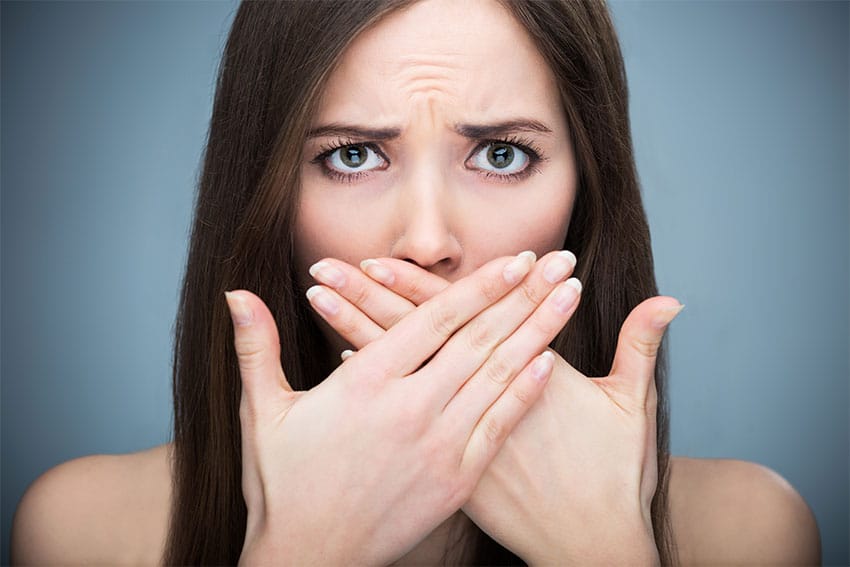Like tooth decay, another common oral health problem around the world is halitosis, or what is commonly known as bad breath.
According to statistics, as much as one in every four Americans experience this problem. One time many people tend to experience bad breath is following oral surgery.
While popping those breath mints and practice of good oral hygiene should be enough to keep your breath fresh. It is still important to know what causes that stinky breath after oral surgery because it can indicate a larger problem going on.
Bleeding After Oral Surgery
If you recently had a tooth extracted, you might notice your breath isn’t its freshest after surgery. The reason bad breath and oral surgery go hand in hand is from the bleeding. If you notice your breath stinks and you’re still bleeding, it might be helpful to drink extra water. However, if your bleeding doesn’t slow down, we suggest contacting our dental office for assistance.

Dry Socket
Another reason why your breath might stink after oral surgery is if you have a dry socket instead of a normal blood clot. Patients who smoke, spit, rinse, or drink through a straw after an extraction, they’re more likely to get a dry socket. Dry sockets usually result in severe pain and bad breath. If you think you have a dry socket, please contact our dental office.
Infection
If you’re not healing well after your oral surgery and the wound becomes infected, this can also cause bad breath after oral surgery. Signs of an infection include bad breath, fever, pus, and severe pain. If you show any signs of infection, please contact us immediately for treatment.
Poor Oral Hygiene
Poor oral hygiene is the number one cause of bad breath. It’s also a cause of bad breath after mouth surgery. If you don’t brush your teeth well, plaque can accumulate and harden into tartar. The rough surface of tartar promotes further plaque accumulation. In addition, you’ll also have food stuck between your teeth that can rot over time.
The numerous bacteria in plaque combined with the rotting bits of food in your mouth cause the unpleasant odor.
Since you recently had oral surgery, you might avoid certain areas of your mouth when you brush. When you do this, the bacteria will begin to form and then cause bad breath.
Practicing good oral hygiene is the only solution in this case. Be sure to brush your teeth every after a meal, and go to your dentist regularly for a check-up and professional cleaning.
Dry Mouth
Dry mouth, or what dentists call xerostomia, is caused by reduced salivary flow. It can be due to smoking, medications, problems with the salivary glands, or even sleeping with your mouth wide open. In the case of oral surgery, it’s fairly common to experience dry mouth from the pain medications you take.
The saliva is the mouth’s natural cleanser, given its ability to wash away bacteria and their acids. If your mouth is dry, bacteria can accumulate and the acids they generate can cause tooth decay. And needless to say, a decayed tooth does not smell so good.
Once you stop taking your pain medications, your dry mouth will resolve itself but in the meantime, we recommend increasing your daily water intake.
For more tips and advice on how to prevent or eliminate bad breath, check out this article.
If you notice ongoing bad breath after mouth surgery, we highly recommend contacting our San Diego dental office for assistance. Bad breath is usually a sign of a problem in your mouth. Please call (619) 656-6785 today to schedule an appointment with Dr. Safarian.
